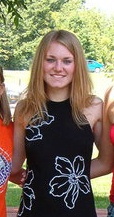In Ed. Psych., we were given a personal learning log to record an activity that we wanted to learn. We are to choose an activity from a different "domain" for each week. These domains consist of health/wellness; political; interpersonal; spiritual; environmental; entertainment; lifestyle; local; or other. After establishing the domain, we identify our objectives of what we want to learn; describe the methods of how to complete the objectives; find ways of assessing our learning; and then reflect on how our lesson relates to the concepts identified in the assigned reading for that week.
For the week of Monday, March 26 to Saturday, March 31, I decided to make an effort to learn more about current events on a local, stately, or worldly basis.
My objectives: be in the know of politics, environmental issues, local/worldly issues--nothing that relates to celebrities! I wanted to really pay attention to what is going on in our nation/world and show a genuine caring/concern for what is happening at this point in time.
My methods: watch the local/world news, MSNBC; go online and find websites of the Cedar Rapids Gazette (my hometown), Des Moines Register (my state's capitol), and New York Times. Listen to and read stories of current events taking place in the community, state, nation, and world.
Assessment: I kept a journal to record the most interesting and/or shocking events of this week. Whenever I discussed the issues with others, I wouldn't consult the journal, that way I could see how much I really did learn. It made for interesting discussions since I could get different insight/opinions on these current issues.
Reflection: After I watched the news and read various online articles from newspapers, I discussed certain issues with my boyfriend, roommate, and other friends. We talked about how we, as Americans and students, are greatly affected these particular issues (e.g. increased tuition, increased minimum wage). It was really interesting that some issues were mentioned and discussed in my other classes. I feel that in order for a student to really know what is going on in the world, they cannot depend on other students, and instead, have to do some research for themselves. This type of learning is called situated learning. It "emphasizes that learning in the real world is not like studying in school" (Woolfolk, 347). It requires students to investigate activities and relate them to the real world--which will ultimately reveal what they have learned and how to apply it to particular situations.
Subscribe to:
Post Comments (Atom)

No comments:
Post a Comment